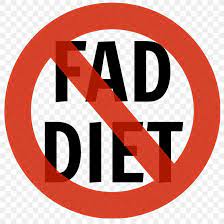Are you struggling to lose weight in menopause? You’re not alone. Many women find it difficult to shed those stubborn pounds during this time in their lives. But don’t worry, we have some effective strategies that can help! In this blog post, we will discuss 11 steps that can help you lose weight and feel your best during menopause.
Contents
Why It Is Difficult To Lose Weight In Menopause?
 Menopause is a condition that all women will experience as they age. It is marked by the end of a woman’s menstrual cycle and is typically accompanied by changes in hormone levels. These changes can lead to weight gain, which can be difficult to lose.
Menopause is a condition that all women will experience as they age. It is marked by the end of a woman’s menstrual cycle and is typically accompanied by changes in hormone levels. These changes can lead to weight gain, which can be difficult to lose.
There are several reasons why menopause may cause weight gain.
One reason is that the body’s metabolism slows down as we age. This means that the body burns fewer calories, even when we are at rest.
Another reason is that the hormones estrogen and progesterone decline during menopause. This can lead to an increase in appetite and cravings for high-calorie foods.
It is also believed that menopause can cause changes in the way that fat is distributed in the body. This may lead to an increase in belly fat, which has been linked to health risks such as heart disease and type II diabetes.
So, you need to be aware of the causes that make it hard to lose weight in menopause. Let’s look at some tips that can help you overcome these difficulties and lose weight successfully.
11 Effective Tips To Lose Weight In Menopause
There is no doubt that menopause comes with its own set of challenges, both physically and emotionally. One of the most common complaints among women during this time is weight gain. While it is true that metabolism slows down and hormones change during menopause.
But there are still things you can do to lose weight and keep it off. Here are 11 effective tips to help you lose weight in menopause:
Cut down on processed foods
Processed foods are high in calories, unhealthy fats, and sugar. They can also contain harmful chemicals and preservatives. Avoiding processed foods is one of the best things you can do for your health. In fact, this is a good tip for anyone trying to lose weight, regardless of age.
In fact, researchers have found that processed foods are linked to weight gain and obesity. Because they are high in calories and low in nutrients, they can cause you to gain weight. For example, some processed food could include:
- Chips
- Cookies
- Cake
- Ice cream
Soda and other sugary drinks
- Frozen dinners
- Packaged snacks
- Processed meats
So, if you’re trying to lose weight, cutting down on processed foods is a good place to start. Otherwise, these types of processed foods will sabotage your weight loss efforts.
Eat more whole foods
 Whole foods are unprocessed and unrefined. They are typically nutrient-rich and contain fewer calories than processed foods. For example, some whole foods include:
Whole foods are unprocessed and unrefined. They are typically nutrient-rich and contain fewer calories than processed foods. For example, some whole foods include:
- Fish
- Chicken
- Eggs
- Nuts and seeds
- Fruits
- Vegetables
- Beans and legumes
- Whole grains
Eating more whole foods can help you lose weight during menopause. Moreover, whole foods are generally more satisfying than processed foods, so you may be less likely to overeat. It is also believed that whole foods may help reduce the risk of some chronic diseases, such as heart disease and type II diabetes.
Some of these also contain protein and fibers that are beneficial for weight loss. More often than not, these nutrients work together to increase satiety and reduce hunger. For example, salmon is a whole food that is high in protein and omega-three fatty acids. These nutrients are known to increase satiety and reduce the risk of overeating.
Cut on calories
It is important to focus on a calorie-deficient diet plan in order to lose weight during menopause. Reducing the calorie intake will help in losing weight and also prevent further weight gain. Also, make sure to include more nutrient-rich and fiber-rich foods in your diet as they help in boosting metabolism.
According to studies, women who are in menopause require about 200 calories less than what they used to consume before menopause. So, if you were consuming 2000 calories per day before menopause, then during menopause, you should aim for 1800 calories per day.
In fact, when you cut on calories and intake low calorie diet, it will help you in weight loss. The muscle mass and water weight also start to reduce when you are in a calorie-deficient state.
Exercise regularly
One of the most effective ways to lose weight during menopause is by exercising regularly. Exercise helps in boosting metabolism and also helps in burning calories. It is recommended to do some form of physical activity for at least 30 minutes every day. You can do any type of exercise that you enjoy, such as swimming, walking, biking, or even dancing.
However, as menopause reflects aged times in a woman’s life, some changes have to be made in the type and intensity of exercises she does.
For example, a woman who was used to running long distances may have to now focus on lower-impact exercises such as walking or swimming, due to the increased risk of joint pain and other age-related issues.
It is also important to strength train during menopause, as this can help in building muscle mass, which in turn helps in burning more calories. So, make sure to add some form of exercise to your daily routine if you want to lose weight during menopause.
Get enough rest and quality sleep
 Quality sleep is crucial for weight loss and overall health. During menopause, women often have trouble sleeping due to hot flashes and night sweats. In that sense, it is more essential to be restful and get good sleep during menopause.
Quality sleep is crucial for weight loss and overall health. During menopause, women often have trouble sleeping due to hot flashes and night sweats. In that sense, it is more essential to be restful and get good sleep during menopause.
There are a few things you can do to improve your sleep quality:
- Establish a regular sleep schedule by going to bed and waking up at the same time every day.
- Avoid caffeine and alcohol before bed.
- Create a relaxing bedtime routine to wind down for the evening.
- Keep your bedroom cool, dark, and quiet.
With these tips, you will be better at getting quality sleep, which will lead to improved health and weight loss. In fact, in this age, sleep is more important for weight loss than diet or exercise.
Enough sleep is crucial because one study have found that poor sleep quality can lead to increased appetite and cravings. As well as decreased willpower to make healthy choices throughout the day. So, give importance to this!
Explore psychotherapy
Psychotherapy is a great option to explore when you’re trying to lose weight in menopause. It can help you understand your relationship with food, and why you may have turned to overeating in the first place. If emotional eating is a problem for you, psychotherapy can be an extremely effective way to address it.
In fact, CBT is the most helpful technique for weight loss.
CBT, or cognitive behavioral therapy, is a type of psychotherapy that helps you change your thinking and behaviors.
It can be an extremely effective tool for weight loss, as it can help you identify and change the negative thoughts and behaviors that are keeping you from reaching your goals. Also, if you have sleeping problems or menopause related anxiety, CBT can be helpful in addressing those issues as well.
Try Acupuncture
Acupuncture is an ancient Chinese practice that involves inserting needles into the skin to stimulate pressure points. Studies have shown that acupuncture can be effective for weight loss, particularly when combined with other lifestyle changes like diet and exercise.
However, this technique is more useful in relieving stress as it can help to regulate the levels of the stress hormone cortisol.
More often, researchers have found that acupuncture is helpful for managing menopausal symptoms like hot flashes and night sweats. If you’re struggling to lose weight during menopause, acupuncture may be worth trying. Look for a licensed practitioner in your area who has experience treating women going through menopause.
Intermittent Fasting
Intermittent fasting is a great way to lose weight during menopause. This strategy involves fasting for periods of time and then eating normally for other periods of time. There are many different ways to do intermittent fasting, so you can find a method that works best for you.
One popular way to do intermittent fasting is the 16/eight method, which involves fasting for 16 hours each day and eating only during the remaining eight hours. This can be done by skipping breakfast and lunch and eating only dinner, or by skipping dinner and eating only during the day.
Another popular intermittent fasting method is the five-two diet, which involves eating normally for five days each week and then consuming only 500-600 calories on the remaining two days.
Whichever intermittent fasting method you choose, be sure to drink plenty of water and eat nutrient-rich foods during your eating periods. This will help to keep your metabolism going and prevent you from feeling too hungry during your fasting periods.
Drink green tea
Green tea is gaining popularity as a weight-loss aid. It’s not only healthy, but research suggests that the catechins in green tea may help boost metabolism and decrease body fat.
To get the most benefit from green tea, drink it freshly brewed. Steeping for too long can release undesirable compounds. Aim for three to five cups per day. However, this is based on drinking unsweetened tea. If you do sweeten your green tea, be mindful of the calories you’re adding.
In fact, according to studies, green tea is one of the best beverages you can drink if you’re trying to lose weight. Because it’s calorie-free, adding green tea to your diet can help you create a calorie deficit and lose weight.
Therefore, start adding green tea to your daily routine if you’re trying to lose weight during menopause.
Control portion size
When you are focusing on the healthy diet, it does not mean that you have to stop eating your favorite foods. You just need to control the portion size. For example, instead of having a huge bowl of pasta, you can just have a cup. This way, you will still be able to enjoy your meals without overindulging.
Also, you should make sure to eat slowly so that you can give your body time to register that it is full. This will help you avoid overeating.
You can arrange your plate with a smaller portion of the starchy foods and a larger portion of vegetables. This way, you will be able to control your calorie intake without feeling deprived.
Another tip is to avoid eating late at night. This is because your body tends to store more fat when you eat close to bedtime. So, pay attention to the clock and make sure to have your last meal a few hours before you go to sleep.
Say “NO” to fad diets
 Fad diets are all the rage these days. But the truth is, they don’t work. And what’s worse, they can actually be harmful to your health. So if you’re serious about losing weight in menopause, then you need to avoid fad diets at all costs.
Fad diets are all the rage these days. But the truth is, they don’t work. And what’s worse, they can actually be harmful to your health. So if you’re serious about losing weight in menopause, then you need to avoid fad diets at all costs.
Instead of following a fad diet, focus on eating healthy, whole foods. This includes plenty of fruits, vegetables, lean protein, and healthy fats. Not only will this help you lose weight, but it will also help improve your overall health.
Because fad diets are so restrictive, they often lead to binge eating. And when you’re trying to lose weight, binge eating is the last thing you want to do. So if you find yourself getting overly hungry on a fad diet, then it’s time to ditch the diet and focus on eating healthy, whole foods instead.
So, these are some tips that can help you lose weight in menopause. Also, be sure to consult with your doctor before starting any weight loss program.
Now it’s time for you to take action and start losing weight in menopause!
Is It Necessary To Lose Weight In Menopause?
Menopause is basically when a woman’s ovaries stop producing eggs and her body goes through some changes. The average age for menopause is 51, but it can happen in your 40s or even earlier.
For some women, weight gain is one of the first signs that they are going through menopause. If you are carrying around extra weight, you might be wondering if you need to lose weight in menopause.
The answer is that it depends. If you are comfortable with your weight and your health is good, then you don’t necessarily need to lose weight. However, if you are carrying around extra weight and you are not happy with your appearance. Then losing weight can be a good idea.
In fact, there are several of benefits of keeping yourself fit even after menopause. Some of the benefits of losing weight during menopause are:
Improved cholesterol levels
When you gain weight, there are other health risks that come along with it such as high cholesterol levels. Losing weight can help improve your cholesterol levels and reduce your risk of heart disease. And, this will also help reduce your risk of other chronic diseases such as diabetes. Moreover, there are plenty of foods that can help lower cholesterol levels.
Reduced joint pain
Joint pain seems common with age, but it can be especially debilitating during menopause. Many women find that their joints ache more and are less able to support their body weight. So, you might be in the need to lose weight and then you will more likely to see a reduction in your joint pain. In fact, researchers suggests that every pound lost can reduce the load on joints by four pounds.
Better sleep
 Lack of sleep and difficulty sleeping is a common problem during menopause. In addition to causing fatigue, sleep problems can also lead to cravings for unhealthy foods and weight gain. To improve your sleep quality, create a bedtime routine that includes winding down for 30 minutes before sleep and disconnecting from electronics screens at least 30 minutes before sleep.
Lack of sleep and difficulty sleeping is a common problem during menopause. In addition to causing fatigue, sleep problems can also lead to cravings for unhealthy foods and weight gain. To improve your sleep quality, create a bedtime routine that includes winding down for 30 minutes before sleep and disconnecting from electronics screens at least 30 minutes before sleep.
Stronger bones
Menopause actually offers some benefits when it comes to bone health. After years of decline, estrogen levels start to rebound during perimenopause, which can help reduce the risk of osteoporosis. However, once menopause is complete, estrogen levels drop sharply, which puts women at greater risk for fractures and other problems. So, you should pay attention to the weight loss. Eventually, you will want to focus on strategies that will help keep your bones healthy and strong.
Improved mood and quality life
When you are fit, you actually feel better mentally as well as physically. This is because working out causes your body to release endorphins, which are known to improve mood and create a general sense of well-being. When you feel good, you are more likely to make healthier choices in other areas of your life as well. In this way, you will be able to lose weight in menopause and improve your quality of life.
These are some benefits that come with losing weight, but of course, the most important one is that you will be healthier. Losing weight can help to reduce your risk of developing obesity-related diseases such as heart disease, stroke, type II diabetes, and certain types of cancer.
In other words, by losing weight now, you are actually investing in your future health. So, what are you waiting for? Use these tips to help you lose weight in menopause and enjoy a healthier life.
Conclusion
To conclude, it is essential to lose weight in menopause if you want to stay healthy and avoid diseases. The above steps will help you do that effectively. Remember to be patient, consistent, and determined, and you will reach your goal in no time.
Moreover, this is always going to be your wish and decision. You can make it happen! Just be strong and have faith in yourself. However, if you are comfortable and happy with your weight, then you do not need to lose any. You are perfect just the way you are.
If you need more tips, contact Mantra Care for professional help. They will be more than happy to assist you on your weight loss journey. Mantra Care is the leading provider of health and wellness services around the globe. We provide expert advice, tips, and resources to help you live a healthier life.
Our weight loss program includes a personalized plan from a nutritionist for you that fits your lifestyle and helps you reach your goals. Schedule a consultation today to get started to lose weight in menopause!


